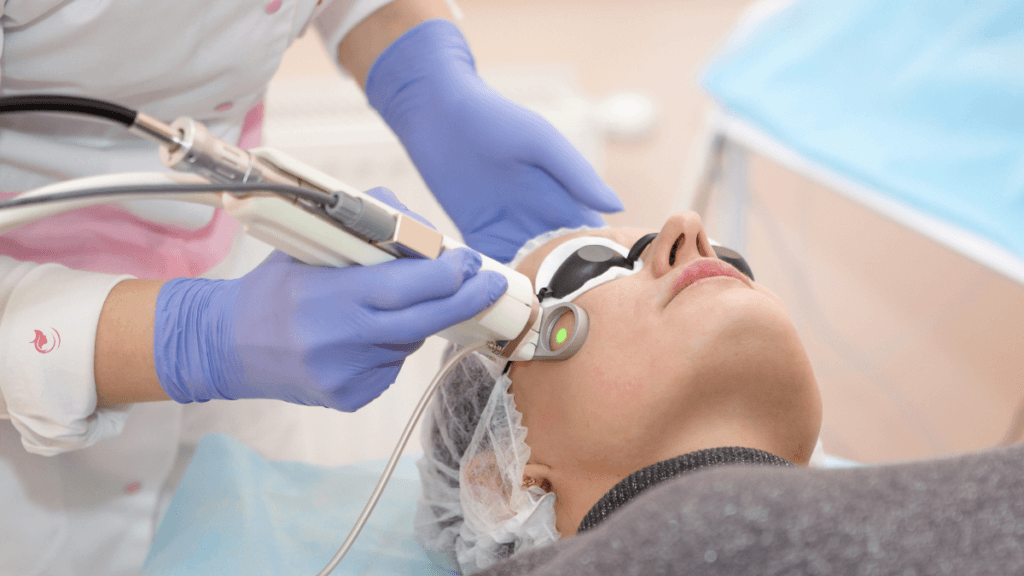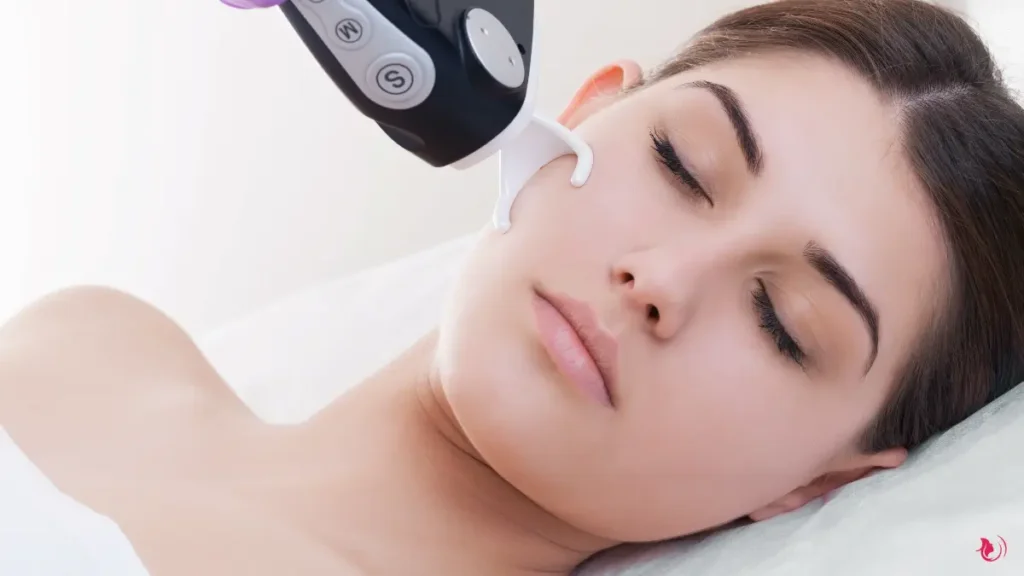Laser skin resurfacing has become a cornerstone in cosmetic dermatology, offering a powerful solution for those seeking to improve their skin’s appearance. With the global facial treatment market expanding rapidly, laser resurfacing stands out for its ability to address a multitude of skin issues, from wrinkles and sun damage to acne scars.
As aesthetic treatments gain popularity, many clinics in the UK provide these advanced procedures, helping individuals achieve smoother, more youthful skin through innovative laser technology.
What Is Laser Skin Resurfacing?
Laser skin resurfacing involves using lasers to remove the outer layer of skin, promoting the growth of new skin cells and collagen. This process can significantly diminish the appearance of various skin imperfections, resulting in a more youthful and refreshed look.
Types Of Laser Skin Resurfacing
There are two primary categories of laser skin resurfacing treatments: ablative and non-ablative.
- Ablative Laser Treatments: These treatments remove the epidermis, the surface layer of the skin, and heat the dermis to trigger the body’s natural healing response. This method is highly effective for treating deeper wrinkles, scars, and severe sun damage.
- Non-Ablative Laser Treatments: These lasers heat the skin without removing the outer layer, promoting collagen production and skin tightening over time. Non-ablative treatments are less invasive, have shorter recovery times, and are suitable for addressing fine lines, mild sun damage, and minor skin imperfections.
Benefits of Laser Skin Resurfacing

The advantages of laser skin resurfacing are extensive. This procedure can minimise the appearance of scars, lighten hyperpigmentation, remove sun damage, reduce fine lines and wrinkles, and tighten loose skin. The treatment not only improves skin texture and tone but also enhances overall skin health by stimulating collagen production.
While laser skin resurfacing offers numerous benefits, it can also cause side effects, especially with ablative methods. These may include inflamed, swollen, itchy, and painful skin, as well as acne and changes in skin color. Non-ablative lasers generally have milder side effects, making them a preferable option for those with sensitive skin.
Medical Uses Beyond Aesthetics
Laser skin resurfacing isn’t limited to cosmetic improvements. Ablative lasers can be used to treat precancerous growths and some superficial skin cancers. Studies have shown significant reductions in precancerous lesions following laser treatment, highlighting the potential of lasers for both preventative and therapeutic purposes in dermatology.
Both ablative and non-ablative lasers effectively boost collagen production. Ablative lasers directly stimulate collagen by heating the underlying dermis, while non-ablative lasers trigger the body’s natural healing response to encourage collagen production over time. This leads to improved skin texture and reduced fine lines, providing a more youthful appearance without extensive downtime.
Prejuvenation
Laser treatments can be utilised for “prejuvenation,” addressing early signs of aging before they become more pronounced. Rather than addressing wrinkles, fine lines, and skin laxity after they appear, prejuvenation involves early interventions with treatments like laser resurfacing, Botox, and topical skincare products to maintain a youthful appearance. This strategy aims to delay the need for more invasive procedures later in life, helping individuals preserve their skin’s youthful qualities for as long as possible through regular, preventative care.
Laser resurfacing can also enhance the results of cosmetic surgery by promoting smoother healing and more refined outcomes.
Laser skin resurfacing is not confined to the face. It can improve the appearance of sun damage, wrinkles, and scars on other areas of the body, such as the chest, hands, and neck. This versatility makes laser resurfacing a valuable tool for addressing a wide range of cosmetic concerns.
Determining the best type of laser and appropriate settings depends on individual skin type, concerns, and desired outcomes. A board-certified dermatologist or plastic surgeon can assess your needs and recommend the most suitable laser resurfacing approach. Personalised consultations ensure that treatments are tailored to each patient, maximising effectiveness and safety.
The Machines
Laser skin resurfacing machines are medical devices and are not directly sold to consumers. However, many aesthetic clinics and dermatology practices use these machines for treatments. Here are some of the leading manufacturers of laser skin resurfacing devices:
- Cynosure (USA): Cynosure is renowned for its innovative aesthetic lasers, including the CO2 lasers used for ablative skin resurfacing. Their PicoSure laser is a standout option for non-ablative treatments, offering precision and efficiency in targeting skin imperfections and promoting collagen production.
- Sciton (USA): Sciton provides a variety of laser systems for aesthetic applications, with their HALO laser being particularly notable. The HALO laser is a hybrid fractional laser that combines both ablative and non-ablative wavelengths, allowing for customisable treatments tailored to the specific needs of each patient. This flexibility makes it a popular choice for both deep and superficial skin resurfacing.
- NORDLYS (France): Nordlys, manufactured by Ellipse, is a prominent name in the aesthetic laser industry. Their FX701 fractional CO2 laser platform is designed for precise skin resurfacing, capable of delivering effective results with minimal downtime. The device is known for its reliability and efficacy in treating various skin concerns.
Beneficial Treatment
Laser skin resurfacing offers significant benefits for both men and women. To all those seeking youthful, rejuvenated skin. As opposed to Botox which “paralyses” the skin, this procedure works very differently on the skin to minimise scars and wrinkles. It is also treating precancerous growths, and enhancing overall skin health. Its versatility makes it a preferred choice for those looking to maintain a fresh appearance.
Clinics like Bodyvie in Richmond provide access to these advanced treatments, ensuring top-quality care. By consulting with qualified professionals and following proper aftercare, individuals can achieve optimal results and enjoy the long-lasting benefits of laser skin resurfacing, staying ahead in the quest for youthful looks.


